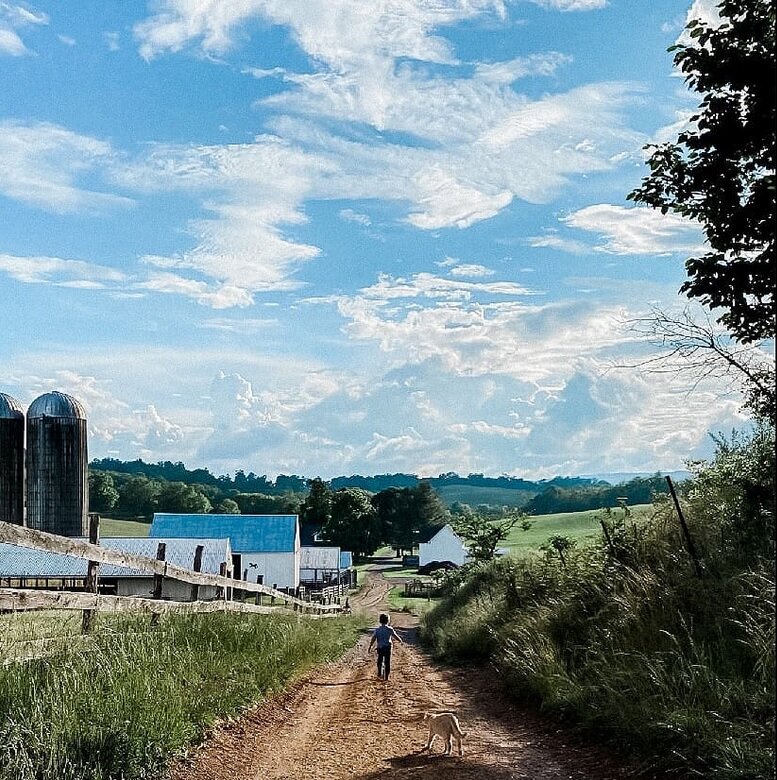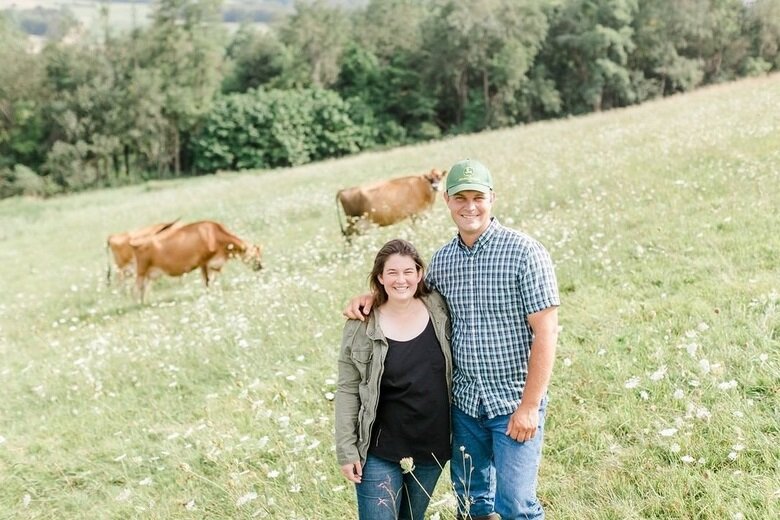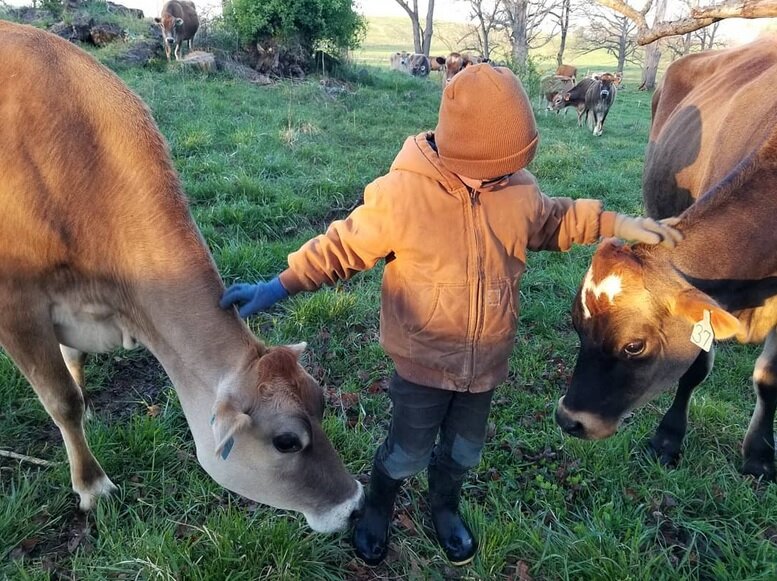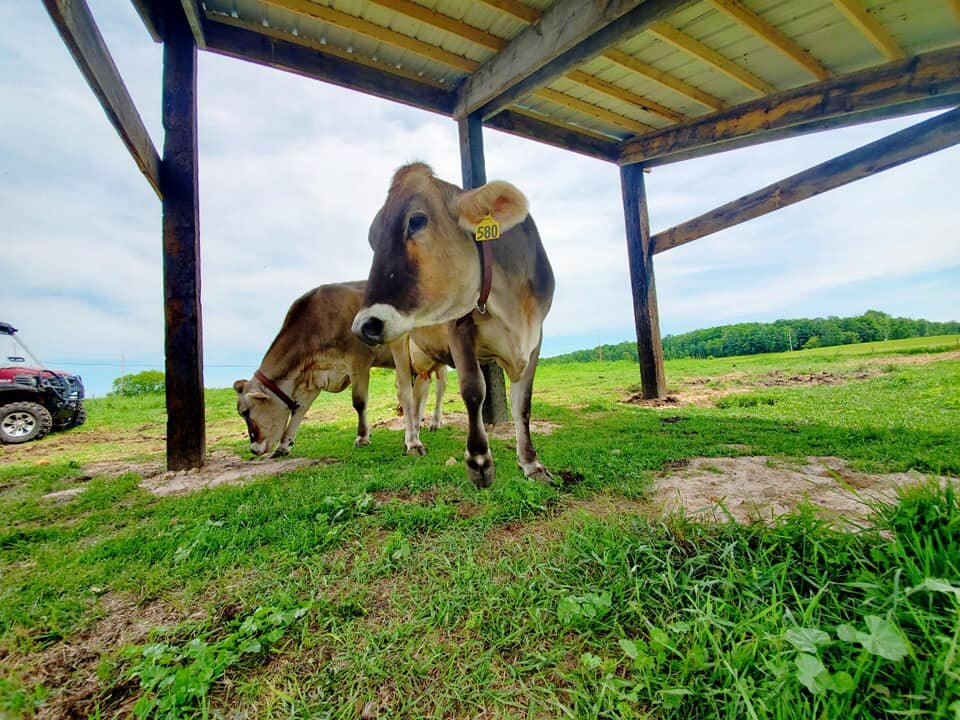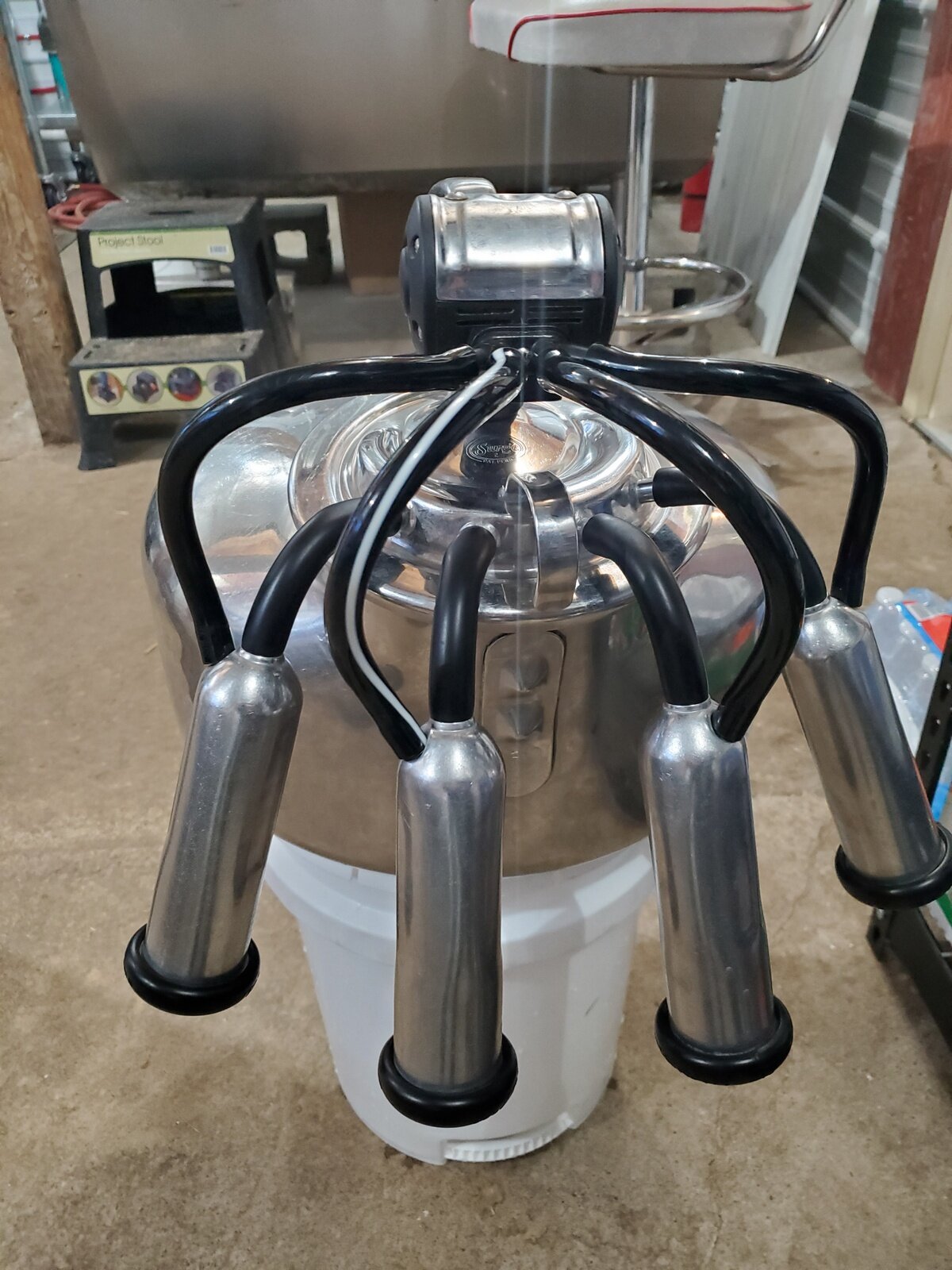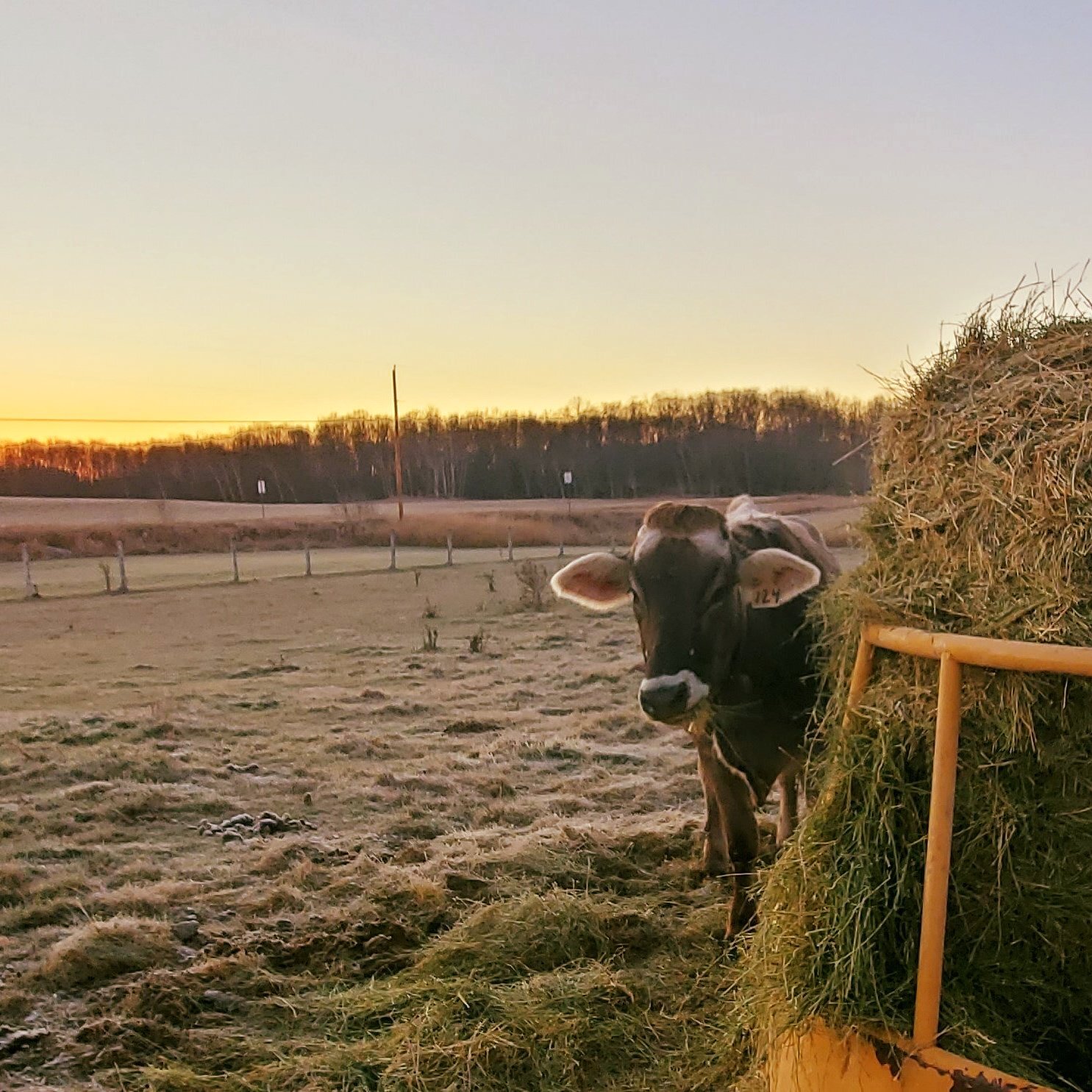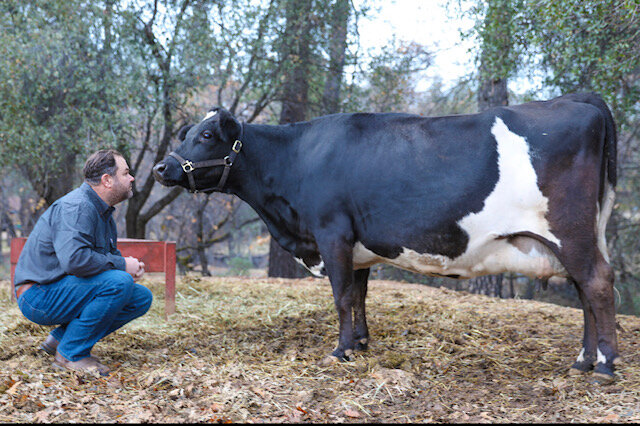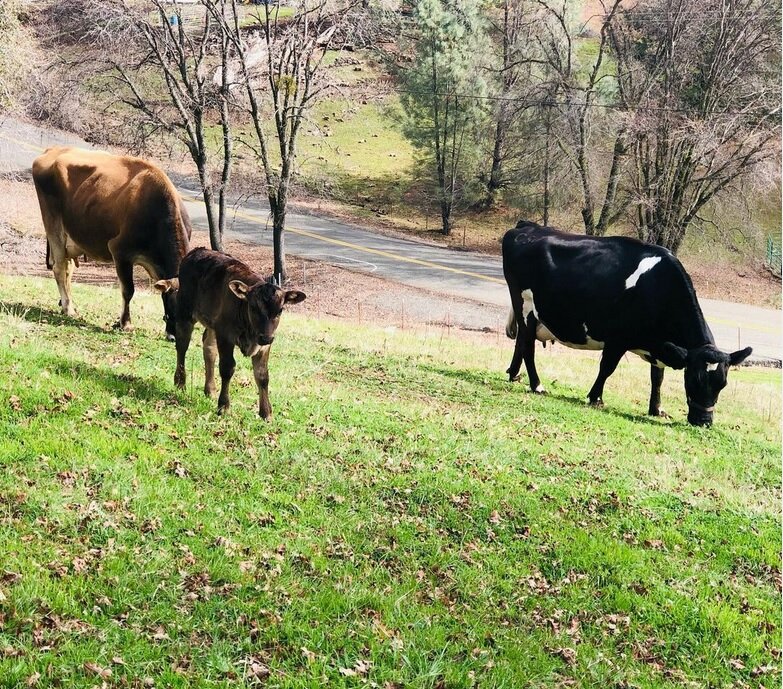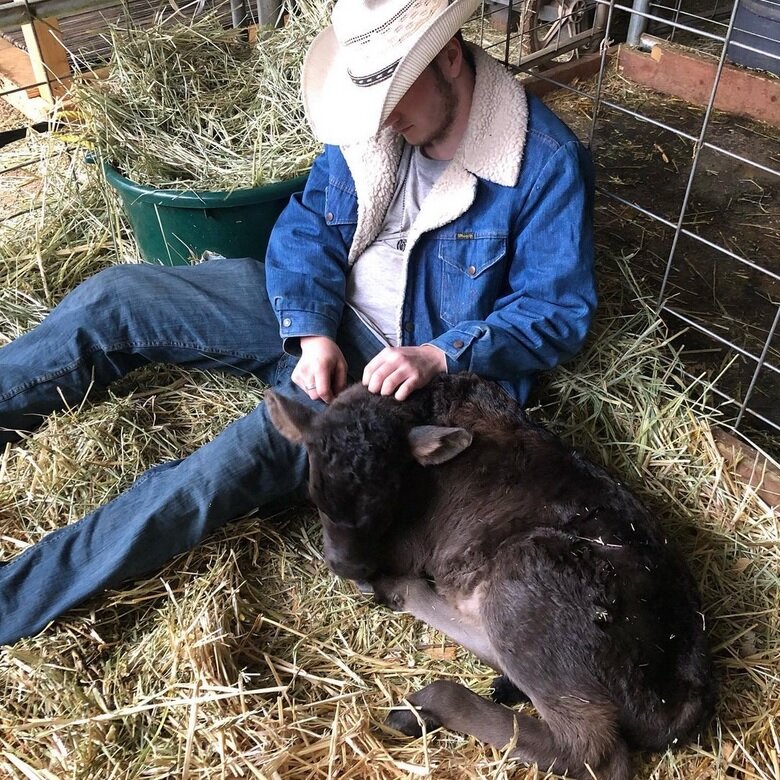Raw milk farmers come from all walks of life. The 26 farmers who are LISTED with the Raw Milk Institute have backgrounds such as helicopter pilot, PhD scientist, electrician, and paramedic. What brings people from so many diverse areas to raw milk farming is the desire to connect with their food, create healthier lives, and provide this life-giving food to their communities.
Three new farms have recently completed the process of being LISTED by the Raw Milk Institute (RAWMI). Becoming LISTED is much more than an administrative process. It involves one-on-one mentoring from RAWMI as each farm develops a Risk Analysis Management Plan (RAMP) for their unique conditions. Milk bacterial testing is then used as a confirmation step to ensure that the RAMP is working well. The whole process generally takes a few months to complete. RAWMI LISTING is the Gold Standard for low-risk raw milk production.
Here’s an introduction to farmers from Virginia, California, and Michigan who have recently completed the LISTING process.
A Heart for Learning – Creambrook Farm in Virginia
Ben and Kristen Beichler are the owners of Creambrook Farm, a thriving herdshare dairy in Virginia. With their herd of over 100 Jerseys on 243 acres of prime Virginia farmland, the Beichler’s are able to provide nutritious grassfed raw milk to 800+ families.
With so much success as a herdshare dairy, it might be assumed that either Ben or Kristen must have been raised on a farm. Yet, surprisingly, they are both first-generation farmers. At the heart of their success is the ability to learn from and build upon the lessons of others. After all, the Beichlers actually met while both working at Joel Salatin’s Polyface Farm back in 2010.
Both Ben and Kristen worked on multiple grass-based farms for years, picking up lessons all along the way that would serve them well when they were finally ready to start their own farm. As their own family started to grow, Kristen settled into motherhood while Ben continued to seek farm experience through working at several grazing dairy farms, including The Family Cow in Pennsylvania.
In 2017, the Beichlers and their young sons were finally able to start Creambrook Farm in Middlebrook, Virginia. Although Ben and Kristen were originally shipping most of their milk to a creamery, within a year they shifted all of their focus to growing the raw milk herdshare. Focusing on raw milk provided a way for them to generate the income necessary to raise their family while working full-time on the farm.
For the Beichlers and their three young sons (7-year-old James, 4-year-old Nate, and 1.5-year-old Teddy), raw milk nutrition is a vital part of their health. Ben and Kristen have seen benefits in their overall health, and raw milk has nourished Kristen throughout her pregnancies and breastfeeding. Their three boys naturally transitioned to raw milk after weaning, and have grown to be healthy and happy with raw milk as a staple part of their diets.
Through their large herdshare, Ben and Kristen are able to share these benefits with their community. The Beichlers are passionate about supporting their members' healthy lifestyles. They make it easy for Virginia families to have high-quality, delicious raw milk with pick-up sites throughout over the state.
Leaving the Rat Race – Jorasz Family Ranch in Michigan
Growing up in Michigan, Teri Jorasz never wanted to be a farmer. Her husband Andy worked at his family’s 300 cow commercial dairy, but Teri herself was never interested in the farming lifestyle. Although Andy had been content to work at his family’s farm since childhood, Teri had been raised in town and never felt any pull towards farming. She worked in sales, marketing, and customer service for decades, while she and Andy raised their four kids.
In 2005, Teri and Andy bought a new home with farmland that could be used for growing feed for Andy’s parents’ commercial dairy. With all that extra space, Teri and Andy decided to augment their incomes with butcher animals that they could sell locally. They invested in Hereford swine breeding stock and a small herd of Red Angus cattle.
Meanwhile, Teri’s work position increased to working 50-60 hours per week in a fast-paced environment with demanding quotas. Years of long, stressful work hours started taking their toll, and Teri felt increasingly dissatisfied with her line of work. She felt a pull to do something more meaningful, and farming started to make deep roots in her heart.
The Jorasz’s herd of butcher animals was growing and needing more attention, and by early 2020 Teri was ready to resign from her sales job to focus on the farm right outside her window. Almost immediately after Teri resigned, everything changed with COVID. Businesses were closing or laying off workers, there was a great demand for locally produced meats, and the Jorasz kids were suddenly thrust into homeschooling.
Teri dove right into the full-time farming lifestyle. She realized that all her previous work and experience had perfectly prepared her to be what she had never expected to be: a farmer! Raw milk farmers often find that the skills they honed in their previous careers are gifts to their farm, and that was the case for Teri, too.
Following in the footsteps of a friend, Teri decided to embark on creating a raw milk herdshare of her own. With mentoring from Andy, Teri started her herdshare with two Brown Swiss cows in the summer of 2020. Soon, Teri’s herdshare grew to 5 cows serving 90+ herdshare members.
Teri’s days are full, but now her heart is full, too. After feeling so dissatisfied in her sales jobs, farming was like coming home. Teri revels in being able to work at home alongside her family at the Jorasz Family Ranch. Her raw milk herdshare is in Bark River, Michigan.
Creating a Healthier Lifestyle for the Sake of Their Sons – Gebrüder Farm in California
John and Allison Wanninger were both born and raised in Placerville California. Growing up, John learned the “old world” way of life from his German immigrant parents. Everything was made from scratch, and almost all of their food was grown right at home. John went on to become a machinist and welder for Gist Silversmiths, crafting belt buckles and other western products for the rodeo circuit and country western scene.
Allison grew up just down the road from the Wanninger homestead, and her family dabbled in raising animals and livestock. Allison had an immense love for animals and animal science. She developed a heart for teaching, and specialized in early childhood education with an emphasis on special education.
John and Allison were married in 2000, and a year later they had their first son, Ethan. By the time Ethan was 15 months old, it was clear that his development was unusual, and he was later diagnosed with autism, epilepsy, apraxia, and severe developmental delay. The Wanningers became participants in the UC Davis Mind Institute’s research on finding the connection between environmental and genetic factors that cause autism.
The researchers from UC Davis performed an exhaustive study of the environment inside and outside the Wanninger’s home, inventorying every product and food in the home and collecting samples of blood, soil, and air. Researchers were even at the hospital to take blood samples and perform tests when the Wanninger’s second son Braden was born.
The last time the researchers visited the Wanninger home, Allison was finally able to get them to reveal some of their findings. The researchers explained that, if they were trying to prevent autism in their own families, they would focus on eating an organic and natural diet while also removing everything unnatural from the environment (chemicals, fragrances, pesticides, and herbicides). This was a life-changing moment for the Wanningers, and from that day forward they moved to create a healthier environment for their sons to grow up in.
Building off of John’s own homestead upbringing, the Wanningers dove into growing and raising their own food. They eventually moved back onto the seven-acre property where John had grown up, and in just a few short years, they brought the farm back to life. They now raise heritage pigs, chickens, beef cows, and dairy cows for the health of their own family as well as the local community.
Allison and John named their farm Gebrüder, which means brothers, since their farm was born out of a desire to create healthier lives for their two sons. Gebrüder Farm serves as a beacon in their community, hosting quarterly educational events, supporting local artisans, and training interns from the local veterinary program.



